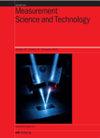A Steel Surface Defect Detection Model Based on Graph Neural Networks
IF 3.4
3区 工程技术
Q1 ENGINEERING, MULTIDISCIPLINARY
引用次数: 0
Abstract
Steel is an indispensable raw material in the construction industry. To avert catastrophic events such as building collapse, it is essential to detect minute defects on steel surfaces during production. However, this has been a persistent challenge due to the minuscule and dense nature of these defects. To this end, we propose an efficient defect detector called Vision Grapher with Hadamard (ViGh) , which employs a novel attention mecha-nism (HDmA) to establish local-to-local relationships within an image and integrates global relationships by graph convolution. With the HDmA module, we can not only fuse information under the same field of view, but also under different fields of view, which significantly enhances the richness of the acquired features. In addition, com-pared to convolutional neural networks, graph neural networks can utilize the contextual information in the image more effectively and resulting in better performance. We eval-uate our model on the NEU-DET and GC-10 benchmark datasets, which encompass six and ten types of defects on the surfaces of hot-rolled and cold-rolled steel, and our mod-el achieves a mean Average Precision (mAP) of 79.04% and 66.93% on the two datasets, respectively. The results demonstrate that our model significantly improves the accuracy of defect detection compared to existing methods.基于图神经网络的钢铁表面缺陷检测模型
钢材是建筑业不可或缺的原材料。为了避免建筑物倒塌等灾难性事件的发生,必须在生产过程中检测钢材表面的微小缺陷。然而,由于这些缺陷微小而密集,这一直是个难题。为此,我们提出了一种名为 "哈达玛视觉图像器"(Vision Grapher with Hadamard,ViGh)的高效缺陷检测器,它采用一种新颖的注意力机制(HDmA)在图像中建立局部到局部的关系,并通过图卷积来整合全局关系。利用 HDmA 模块,我们不仅可以融合同一视场下的信息,还可以融合不同视场下的信息,从而大大提高了获取特征的丰富性。此外,与卷积神经网络相比,图神经网络能更有效地利用图像中的上下文信息,从而获得更好的性能。我们在 NEU-DET 和 GC-10 基准数据集上评估了我们的模型,这两个数据集包括热轧和冷轧钢材表面的六种和十种缺陷,我们的模型在这两个数据集上的平均精度(mAP)分别达到了 79.04% 和 66.93%。结果表明,与现有方法相比,我们的模型大大提高了缺陷检测的准确性。
本文章由计算机程序翻译,如有差异,请以英文原文为准。
求助全文
约1分钟内获得全文
求助全文
来源期刊

Measurement Science and Technology
工程技术-工程:综合
CiteScore
4.30
自引率
16.70%
发文量
656
审稿时长
4.9 months
期刊介绍:
Measurement Science and Technology publishes articles on new measurement techniques and associated instrumentation. Papers that describe experiments must represent an advance in measurement science or measurement technique rather than the application of established experimental technique. Bearing in mind the multidisciplinary nature of the journal, authors must provide an introduction to their work that makes clear the novelty, significance, broader relevance of their work in a measurement context and relevance to the readership of Measurement Science and Technology. All submitted articles should contain consideration of the uncertainty, precision and/or accuracy of the measurements presented.
Subject coverage includes the theory, practice and application of measurement in physics, chemistry, engineering and the environmental and life sciences from inception to commercial exploitation. Publications in the journal should emphasize the novelty of reported methods, characterize them and demonstrate their performance using examples or applications.
 求助内容:
求助内容: 应助结果提醒方式:
应助结果提醒方式:


